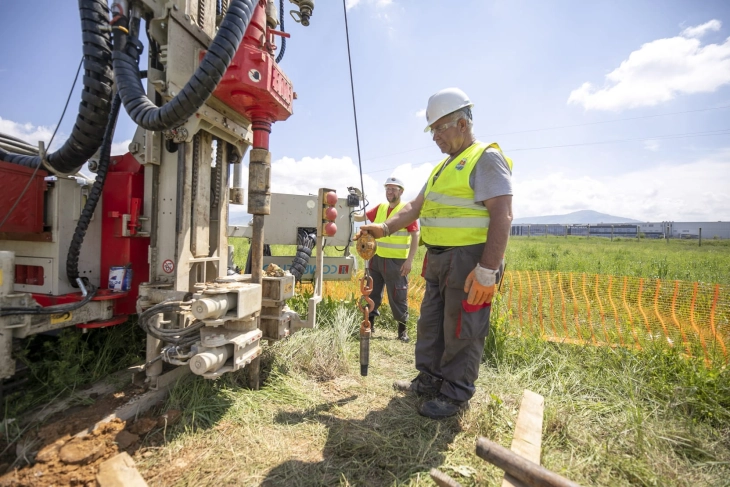Dimitrieska-Kochoska: No reason for doubt, capital investments are realistic and will be implemented
- Minister of Finance Gordana Dimitrieska-Kochoska said Tuesday that the World Bank has alerted the country that in recent years, there has been insufficient focus on implementing the projects financed by this international institution. Responding to journalists’ questions after the presentation of the 2025 draft budget, which was adopted by the government, Dimitrieska-Kochoska noted that the projected capital investments are realistic and there is no reason to question their realization.

Skopje, 29 October 2024 (MIA) - Minister of Finance Gordana Dimitrieska-Kochoska said Tuesday that the World Bank has alerted the country that in recent years, there has been insufficient focus on implementing the projects financed by this international institution. Responding to journalists’ questions after the presentation of the 2025 draft budget, which was adopted by the government, Dimitrieska-Kochoska noted that the projected capital investments are realistic and there is no reason to question their realization.
According to Dimitrieska-Kochoska, the budget for capital investments, valued at 50.65 billion denars, cannot be cut, as most of the funds are expected to come from loans.
She confirmed that pensions will increase by 2,500 denars in March. Regarding salary increases, she explained that besides the allocated 5.5 billion denars, there will be buffers in case an agreement is reached at the Economic and Social Council for additional increases beyond what is planned in the budget. She also announced a legislative adjustment, stating that the current solution does not align with the policy of linear growth for wages and pensions.
Dimitrieska-Kochoska said that around 24 billion denars will be allocated to the Pension and Disability Insurance Fund for wage increases, while she could not specify the exact figures for pensions.

“We cannot reduce the capital investment budget because the majority of the funds are planned to come from loans. Never before have so many projects been financed by loans as they are now. Last week, in the US, I held talks with the World Bank, and they cautioned us that project implementation had been neglected over the past few years. Today, we had extensive talks in the government about implementing these projects. There is no reason to doubt their realization. The crucial part is how ministers organize their work. These ministers are prepared and are working hard to unblock projects that have been stalled. If we can get these projects moving, implementation will follow. When we talk about funds in capital investments, we are talking about actual investments, not transfers like in the past, which ended up covering salaries or purchasing raw materials,” Dimitrieska-Kochoska said.
In terms of public debt, she noted that it will largely depend on how public enterprises manage their borrowing.
“If we consider what the Ministry of Finance can directly control, national debt will not surpass 60 percent. As for overall public debt, it will depend on the data we receive from public enterprises regarding their implementation. The eurobond set for January stands at 500 million euros; we are securing the funds and will refinance it, in addition to around two billion for ongoing obligations. There are also government securities not included in the Budget,” Dimitrieska-Kochoska said.
Photo: MIA archive







